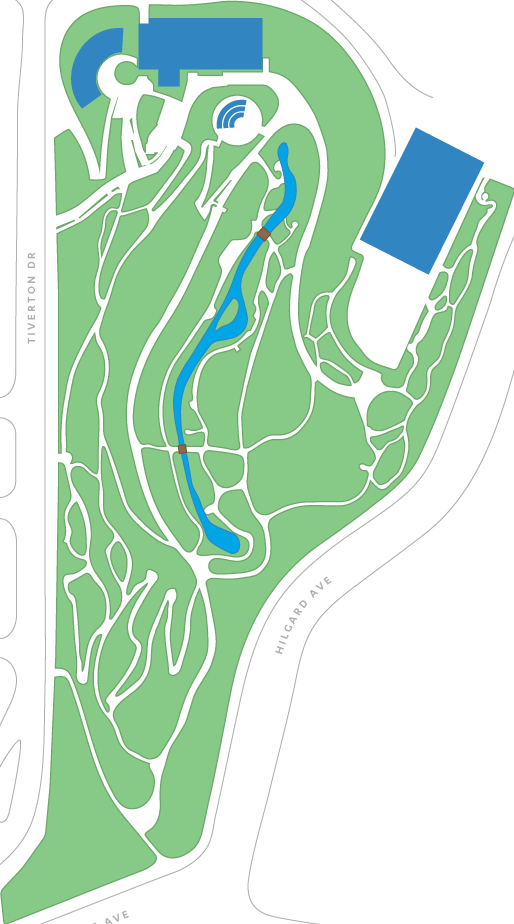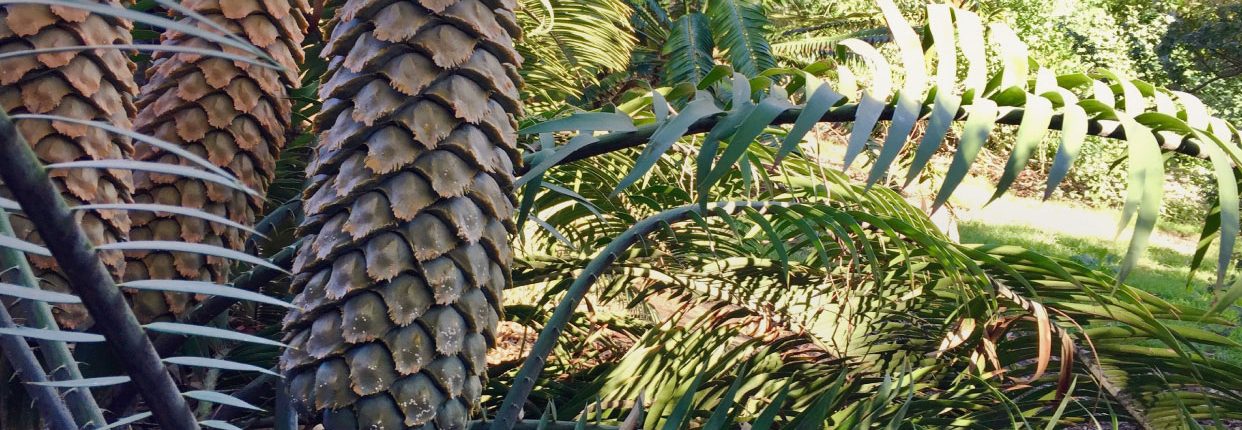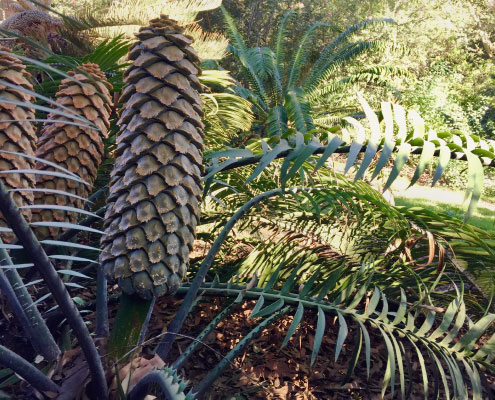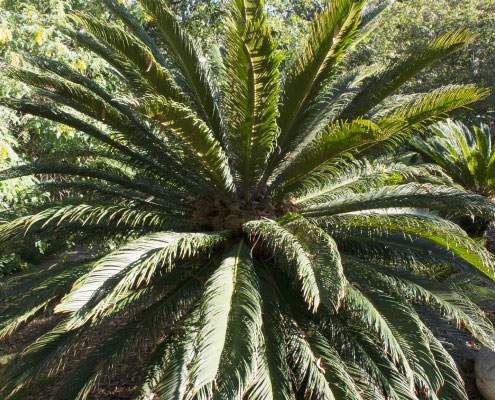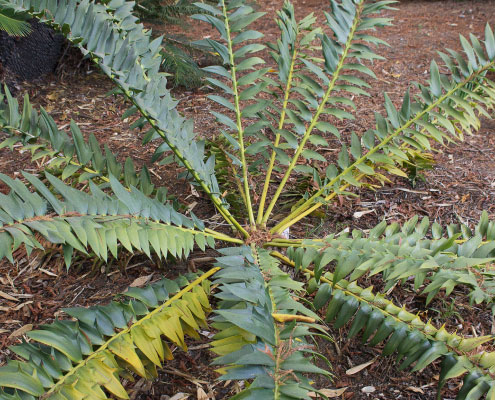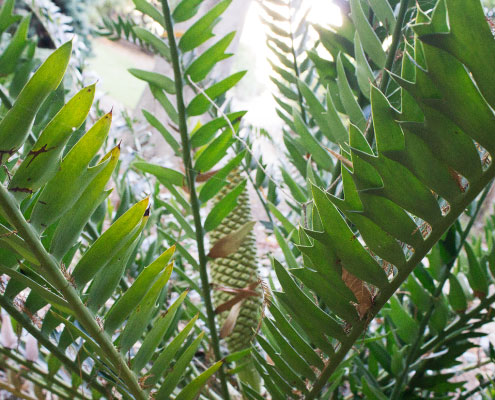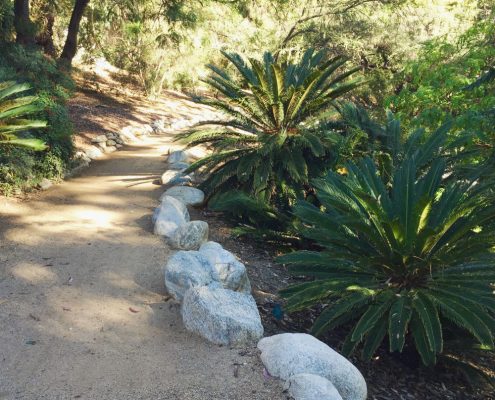![]()
Cycads
Though they resemble palms, cycads are an unrelated group of seed-bearing plants. They arose before the age of dinosaurs, over 280 million years ago. Today about 350 species occur in subtropical and tropical regions of the world. Many are slow growing and extremely rare in the wild. The modern cycads you see here evolved more recently, but are similar to their ancestors. They are dioecious, meaning there are separate male and female plants within a species, that grow distinctive reproductive structures, like the ones in this illustration. Look near the center of their plants to see if you can observe such structures.
Cícadas
Aunque se parecen a las palmeras, las cícadas son un grupo de plantas distinto que produce semillas. Surgieron antes de la época de los dinosaurios, hace cerca de 280 millones de años. Actualmente existen alrededor de 350 especies en regiones tropicales y subtropicales del mundo. Muchas crecen muy lentamente y son extremadamente raras de encontrar en su ambiente silvestre. Las cícadas modernas que puedes ver aquí evolucionaron más recientemente, pero son muy similares a sus ancestros. Son plantas dioicas, lo que quiere decir que hay plantas femeninas y plantas masculinas dentro de la especie. Cada planta es capaz de producir estructuras reproductivas femeninas o masculinas, según sea el caso, como las de esta ilustración. Observa el centro de la planta para ubicarlas.
Explore further
Cycads are much older than the flowering plants which dominate much of the world today (by comparison the first flowering plants arrived approximately 160 million years ago). Cycads are gymnosperms, characterized by having unfertilized seeds which are open to the air, and so are cousins of conifers and the gingko tree.
Our Cycad collection is located at the entrance on Tiverton. Several large Cycas specimens can be seen here. Cycas revoluta, one of the most widely cultivated cycads, hails from southern Japan and is the northernmost naturally occurring cycad. Another highlight of the cycad garden is the unusual Natal grass cycad (Strangeria eriopus), a southern African species.
